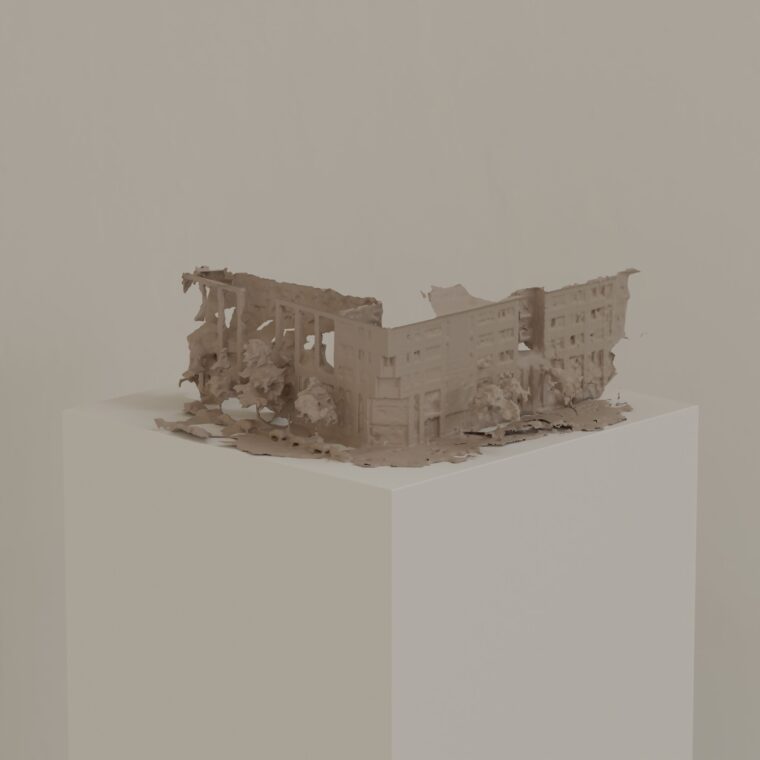

Coline Rousteau, Seeing exile: asylum at the bureaucratic counter
PROJECT DURATION
2021 - 2023
PROJECT OWNER(S)
Coline Rousteau
IN COLLABORATION WITH
ESTCA (Paris 8), Marc Bloch Center, BerlinSeeing Exile: Asylum at the Bureaucratic Counter or, Research-Creation on the Images and Spatialities Framing Management and Bureaucratic Assignments Concerning Migration in France and Germany
This research-creation project in Arts and Sociology delves into the management and bureaucratic assignments of migration in France and Germany, in a double dimension, both experienced and perceived. Joining together artistic and theoretical research, an ethnographic survey takes on the former while the latter is understood through a reflection on how cinema and contemporary art represents these phenomena. Its aim is thus to combine a written dissertation with the production of various audiovisual installations based research in the field.
Relying particularly on Aline Caillet’s L’art de l’enquête (The Art of Investigation), the dimensions of this ethnographic investigation and research-creation are apprehended here as absolutely inseparable, functioning through the principle of communicating vessels. More specifically, this project delves into the people who act as “buffers” between the government and the people applying for a residence permit, such as the officers of OFPRA (Office Français pour les Réfugiés et Apatrides) (French Bureau for Refugees and the Stateless) in France and of the BAMF (Federal Office for Migration and Refugees) in Germany. Let us begin with the observation that bureaucratic spaces, such as that of the OFPRA or the BAMF, are capable of transforming individuals, their behavior, and their emotions. Taking that observation as starting point, this project aims to question the modalities of interrelations between such spaces and the different social agents adapting to that environment, as well as between the social agents themselves. Based on interactionist sociology and the notion of framing, the goal is to appropriate Alexis Spire’s perspective on asylum at bureaucratic counters, or “counter politics.” Such “counter politics” should be understood as the sociology of administrative acts at the level of interaction between civil servants “in the field” and the targeted public.
In a second phase of this work, the realization of an ethnographic survey on asylum at the bureaucratic counter in France and Germany constitutes an anchorage point for attempting to visualize, materialize or spatialize these places and the bureaucratic procedures for visa or asylum requests. In doing so, this research, in its plastic and visual frameworks, consciously reaches toward the participatory. At the same time, amid the images of migrants that are conveyed today and that construct our more or less imaginary perceptions of exile, the question becomes, which of these images attest to the social mechanisms at work in the bureaucracies of French and German migration? At its conclusion, the different elements collected here will all be gathered together and will give rise to a sort of visual and spatial cartography made up of these different subjectivities linked together in the bureaucratic chain of migration. By that very fact, and by means of a participatory methodology, this research-creation hopes to give form to, if not answer, the question asked by Vincent Dubois, “How is a problem offered up as personal translated into administrative terms? What are the norms internalized by these individuals?”.
Research-creation notebook at the crossroads of social science investigation and the art of investigation : Frontièroscope
Biography

A graduate of Sciences-Po Lille and the École Normale Supérieure de Lyon, Coline Rousteau also holds a master’s degree in Philosophy, Politics, and Economics, as well as a master’s degree in “Thoughts on Cinema.” After completing her degrees, she began a research-creation dissertation at the EUR ArTeC University Research School. Her dissertation, entitled “Faire voir l’exil au guichet : une recherche-création sur la mise en espace et en images des gestions et affections bureaucratiques de la migration en France et en Allemagne,” (Seeing Exile: Asylum at the Bureaucratic Counter or, Research-Creation on the Images and Spatialities Framing Management and Bureaucratic Assignments Concerning Migration in France and Germany), is under the direction of Dork Zabunyan and Nathalie Delbard. She is also an associate doctoral student at the Marc Bloch Center (Franco-German Center for Research in Social Sciences – German Law Association) under the supervision of Nikola Tietze.
More broadly, her work focuses on the interrelations between artistic practice and research in the social sciences and humanities. In particular, she questions the borders specific to these disciplines, both in terms of a scientific or heuristic perspective, but also, and above all, in terms of their potential for inclusion, or inclusiveness. It is thus a question of trying to bring out the pertinence of an interdisciplinary approach mobilizing research-creation.
PROJECT TEAM
Direction: Dork Zabunyan, Professor of Film Studies at the University of Paris 8, within the ESTCA laboratory (Aesthetics, sciences and technologies of cinema and audiovisual).
Co-direction: Nathalie Delbard, Professor of Plastic Arts at the University of Lille, within the CEAC laboratory (Center for the Study of Contemporary Arts).
Associate PhD student at the Marc Bloch Center in Berlin: under the tutorship of Nikola Tietze, researcher at the Center Marc Bloch. Her research focuses on conflicts concerning access to social rights and equal treatment in the transnational space, constituted by the EC/EU, on the one hand, and French and German public action, on the other. other.
Guest Student at the Weissensee Kunsthochschule in Berlin: under the tutorship of Hannes Brunner, artist and teacher in the Sculpture/Bildhauerei department.











